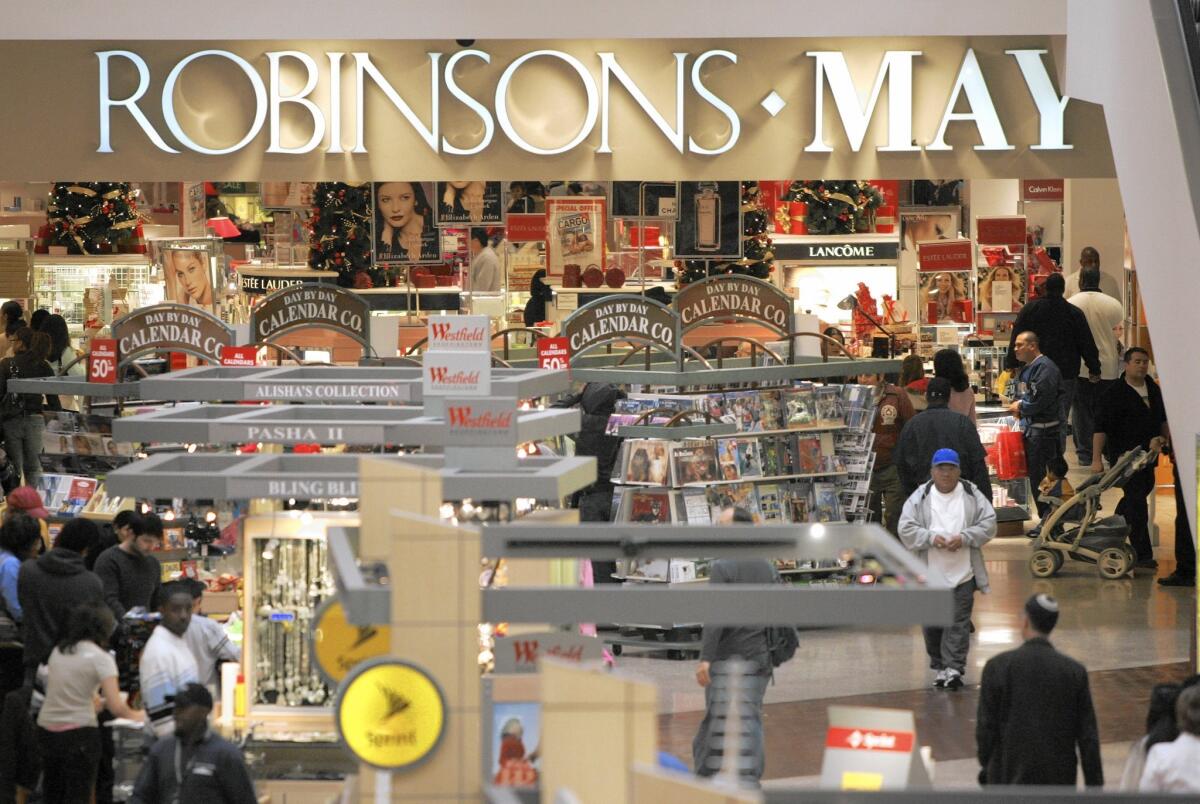Miss May Co. and I. Magnin? Newport businessman plans to bring them back

If Newport Beach businessman Ellia Kassoff has his way, shoppers may soon be perusing the latest fashions at May Co. Or maybe Robinson’s or one of several other stores that have long disappeared from the retail scene.
Kassoff, chief executive of Strategic Marks, a company that revives defunct bands, has entered a settlement with Macy’s Inc. that grants him the trademarks to seven once-prominent department store brands. Details of the settlement, which was announced Friday, were not disclosed.
Kassoff, who in 2014 revived Hydrox, the chocolate cookie sandwich that for years competed with Oreo, now owns the trademarks to I. Magnin, a San Francisco-based high-fashion and specialty-goods chain that shut down in 1995; Robinson’s, an upscale Los Angeles-based store; May Co., an L.A.-based midlevel chain that merged with Robinson’s in 1993 to form Robinsons-May, which folded in 2006; and Bullock’s, which also was based in Los Angeles until it ended in 1996.
He also was granted trademarks to Foley’s, a clothing and housewares store once based in Houston; Jordan Marsh, a former East Coast department store chain known for its blueberry muffins; and Bamberger’s, which also was popular on the East Coast.
All the brands were absorbed by Macy’s in a series of consolidations that spanned decades.
Macy’s said the settlement, which ends six years of litigation between Kassoff and the department store giant, allows Macy’s to retain the rights to Chicago-based Marshall Field’s, New York-based Abraham & Straus and Massachusetts-based Filene’s Basement, all of which have closed their stores.
Kassoff applied to the U.S. Patent and Trademark Office to take over the trademarks for the brands. Federal law says a brand is considered abandoned if a business doesn’t use it for three years. However, Macy’s sued Kassoff in an attempt to block the move and retain the rights to the brands.
Kassoff countersued, claiming that Macy’s abandoned its rights to the trademarks and had been illegally using them on its website, according to federal court records.
The settlement allows Strategic Marks to move forward with its plan for an online retro fashion mall, where Kassoff plans to revive the brands before launching brick-and-mortar stores in major malls. He said he’s still deciding which brands he’ll bring back first and when.
“The key is making the experiences the way people remember them,” Kassoff said. “I want to bring back all the stuff that Macy’s tossed out.”
Kassoff said the Macy’s shopping experience — in which one can find almost the same merchandise in stores across the country — feels “homogenized.” Previously, he said, department stores would employ regional buyers who would select merchandise tailored to shoppers in specific areas.
Kassoff said that in his research, “consumers noted the current shopping experience is quite drab, as there is no localized marketing or buying for the regional stores anymore.”
“People want to go back to the days when shopping was a real experience at their local department store,” he said. “They really miss that.”
